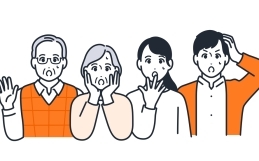We can’t control family history, but we can control what we do moving forward.
If you’ve ever tried to understand the issues you’re currently facing, you might have thought about how your early life experiences influenced them. Thinking this way might have made you blame your current hardships on your parents. When you think in simple, cause-and-effect terms, blaming your parents for everything is easy. They might have done some pretty irresponsible things. If you’ve ever had the following thoughts, you’re not alone: “I’m needy for love because my parents never showed me affection.” “I don’t know how to pay my bills because my parents were always bad at managing their money.” “I have a fear of commitment because my parent’s marriage didn’t work out.”
Considering how our parents contributed to our issues as adults makes sense. However, before we place all the blame on them, it’s essential to consider the position they held in their own families of origin. Asking how their parents shaped their paths and led them to become who they are is necessary. What challenges did they and the generations before them face? Your parents were kids once, too, and throughout their lives, they’ve faced difficulties similar to the ones you face. When you think about your parents this way, it might invite you to look at the bigger picture, seeing them as humans—not as perfect beings with ideal upbringings who decided to mess you up a little bit.
I will say something that might be difficult to understand, but I hope you’ll follow me. Most of your parents’ reactions to you have come from unconscious efforts to relieve their own anxiety, not from evil attempts to screw up your childhood and adulthood. Your parents inherited patterns of relating to their loved ones, just as you did. You might think, “Okay, but it doesn’t improve it, even if that’s true.” This notion of absolving your parents of blame may make your skin crawl. However, if you open your mind to it, you’ll see specific patterns in your family system that can give you insights into why your parents treated you the way they did. This knowledge will help you know what patterns you’re up against and what changes must be made so your children won’t yell at you for hurting them in the same way 20 years from now.
Seeing that your current problems go far beyond the mistakes of your parents, their parents, and the parents before them allows you to understand what’s going on in a way that won’t have you blaming anyone. Knowing that it’s up to you to look at how your family has done things for generations can help you make essential changes, heal yourself, and respond differently to the ones you love. It can lead you to address the things you can change within yourself instead of blaming others. We mature when we realize that our parents and we are flawed. Once we accept that, we can start to face and resolve our problems—many of which are similar to those of our parents. When you’re willing to look, it’s almost impossible to avoid seeing a connection between your parents’ behaviors while you were growing up and your behaviors as an adult.
Looking Back to Move Forward
Our mothers and fathers grew up with a certain level of tolerance for upset, anxiety, disharmony, emotional connectedness, and demands from others. This tolerance level unfolds in their close relationships and through their reactivity to their children. The ability to deal with life circumstances, one of those things that gets inherited, can be referred to as emotional maturity or, as psychiatrist and researcher Dr. Murray Bowen calls it, differentiation of self.
The examples below will show the influence of various patterns that may develop between parents and children.
- If you were the child your parents worried most about, you got accustomed to the emotional pattern of having them jump in to smooth out your difficulties. As a result, you instinctively expect and invite others to solve your problems.
- If your parents’ anxieties were projected onto you, you likely got used to exaggerated criticism and correction. You might be prone to similar negative overreactions.
- If one or both of your parents reduced their tension by giving in to your demands, you may find it difficult to let go of constantly feeling entitled.
- If one or both of your parents confided in or leaned on you when things were tough or distant in their marriage, you’re likely to have an easy time giving advice but a tough time accepting it.
- If you were pushed to center stage by parents who got a sense of security and esteem from exaggeratedly applauding your achievements, you likely can’t tolerate not being important.
Do any of these patterns ring true for you? Ask yourself, “Can I identify some patterns relating to people I developed in my family that have contributed to my current issues?”
Keep in mind it’s not necessarily the case that our parents’ ways of being have caused us to have limitations. Instead, it makes sense to say that our parents have influenced our natural responses, and they were also influenced by family patterns that span back several generations and will continue into future generations. Everyone’s path to emotional maturity is different. Knowing that we all have ways we react to the people we love based on what we’ve inherited is an essential first step in breaking that pattern. We must become more aware of the automatic responses that relieve our stress. Although they are instincts we’ve inherited to make ourselves feel better at the moment, they are not the responses that will make meaningful changes in ourselves and our relationships. Remind yourself of who you want to be in your moments of stress, and try to respond more logically rather than in the ways predicted by the patterns in your family of origin.
Even though we can’t control our family history, we can always learn to control what we do moving forward, and this will impact not only your life but future generations in your family, too.
Did you enjoy reading this article?
Once a week I send out a newsletter with new articles and unique content for readers. It is my way of staying in touch with you and giving you free advice based on some important topics.
Click here to sign up for my newsletter.





